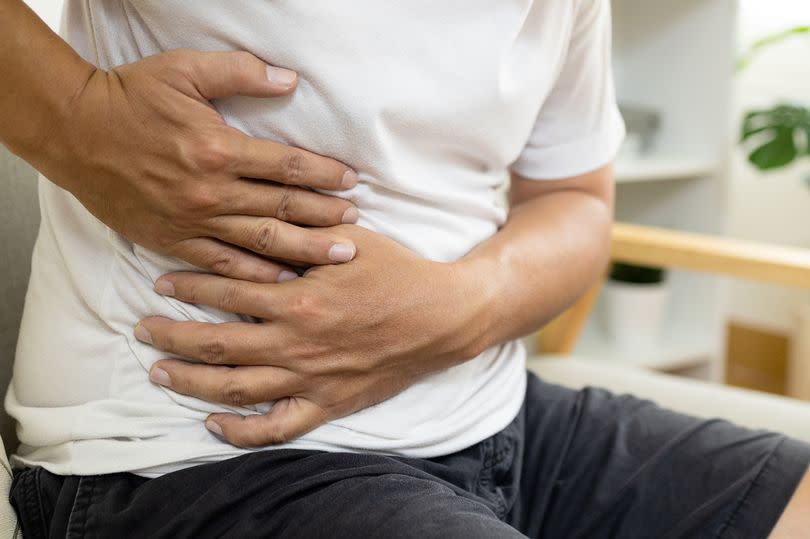GP warns of red flag bowel cancer symptoms which should never be ignored

A GP has shared a number of red flag symptoms of bowel cancer which should never be ignored. Dr Mark Porter explained in The Times that may people take too long to report ailments to their doctors as they are bowel related.
Bowel Cancer UK has launched a brand-new awareness campaign this month to prompt people to have worrying symptoms checked out sooner. Dr Porter believes that embarrassment and anxiety of doctoral investigations is one reason why people put a trip to their GP off, according to Dr Porter.
The health professional explained that some symptoms are fairly ordinary, but changes should be investigated - warning: "Common red flags include bleeding from your bottom (often not cancer but never normal) and/or an unexplained and prolonged change in bowel habit (more than a few weeks), typically to becoming looser rather than constipated."
Dr Porter also noted that getting an appointment is crucial reports Gloucestershire Live. He added: "Call or email your practice, outlining your symptoms (and any relevant family history of bowel cancer), stating that you are concerned.
"What happens next will depend on practice policy but will often start with a stool test that you can do at home to look for, or confirm, bleeding, as well as some blood tests, all followed by an appointment with the GP to run through your symptoms and results."
Innocent causes range from IBS to piles, and these can often rule out bowel cancer - but if there is any doubt, patients will be fast-tracked onto a suspected cancer pathway where they will be offered a colonoscopy.
Dr Porter, explained: "The next hurdle is what the specialist finds but I can reassure most of you about this too: 90 per cent of people referred on the 'two-week' pathway with suspected bowel cancer will turn out to have nothing of the sort. This still means 10 per cent will be given bad news but, assuming they sought help as soon as they could, there is a good chance they will be cured.
"The five-year survival rate after surgery alone for very early cancers is about 90 per cent, but this drops to 10 per cent for the most advanced cases."

 Yahoo News
Yahoo News 
